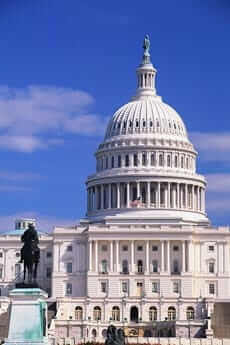Stem Cell Policy

Statement Regarding Stem Cell Research Political Positions
NYSCF’s mission is to accelerate cures for the major diseases of our time through stem cell research. As a non-partisan, non-profit organization funded primarily through private philanthropy, NYSCF supports federal funding for all forms of stem cell research. Federal funding for stem cell research enables the nation’s top academic scientists at universities, medical schools, and teaching hospitals to join in the search for cures. NYSCF scientists conduct cutting-edge stem cell research in an independent, state-of-the-art laboratory, and they collaborate with scientists at leading academic and medical institutions worldwide.
An overview of federal funding for embryonic stem cell research
In March 2009, President Obama issued an executive order overturning a Bush administration policy that for eight years restricted federal funds for human embryonic stem cell (hESC) research to a limited number of lines created before August 9, 2001. This executive order authorized the National Institutes of Health (NIH) to establish new policy and procedures under which federal funds could be used for stem cell research.
A few months later, in July 2009, the NIH issued guidelines that outlined its new policy. Unfortunately, they still limited some very promising avenues of research by restricting the creation of stem cell lines with federal funds. These guidelines also inadvertently limited the genetic diversity of federally funded hESC lines.
Then, on August 23, 2010, a federal judge issued an order to block all federally funded stem cell research. The unexpected decision was so far-reaching that it not only overturned President Obama’s 2009 Executive Order, but it also halted research on lines approved during the Bush administration. The judge ruled that the Obama administration’s policy was illegal based on his interpretation of the Dickey-Wicker Amendment. A temporary stay on the injunction was ordered, and in late 2010 oral arguments were heard.
On July 27, 2011, U.S. District Judge Royce Lamberth, Chief Judge of the federal court in Washington, threw out the lawsuit, allowing the U.S. to continue to support the search for cures to deadly diseases through stem cell research. In his decision, Judge Lambreth stated that he was bound by the D.C. Circuit’s reasoning and conclusions that embryonic stem cell research is not “research in which a human embryo or embryos are destroyed.” Nevertheless, the plaintiffs pushed forward. On August 24, 2012, a three-judge panel of the US Court of Appeals upheld the previous court’s decision, and, at the beginning of 2013, the Supreme Court refused to hear the plaintiff’s subsequent appeal, effectively bringing an end to the case.
Any federal agency’s stem cell research policy remains severely limited by the Dickey-Wicker Amendment. This Amendment, passed by the Congress in 1995, prohibits the allocation of federal funds to the creation of human embryos for research purposes or for research in which human embryos are destroyed. Although this legislation was authored prior to the discovery and characterization of hESCs, the political reality is that it is unlikely to be overturned in the foreseeable future because hESC research has been linked, however unreasonably, to abortion politics.
For more information on international stem cell policy, visit our Resources page.
Download Talking Points on Federal Stem Cell Policy
Even with federal policy changes, NYSCF is essential for the field of stem cell research:
- Privately funded scientific research has proven to be more agile than research tied to major institutions or governmental funding — it is, and will continue to be, a critical and necessary driver of the most innovative and promising stem cell science.
- Funding for stem cell research through federal or state governments will always remain subject to shifting priorities.
- The federal government often funds basic research instead of translational research, which focuses directly on curing diseases.
- Many forms of promising stem cell research will never be supported by the federal government.

